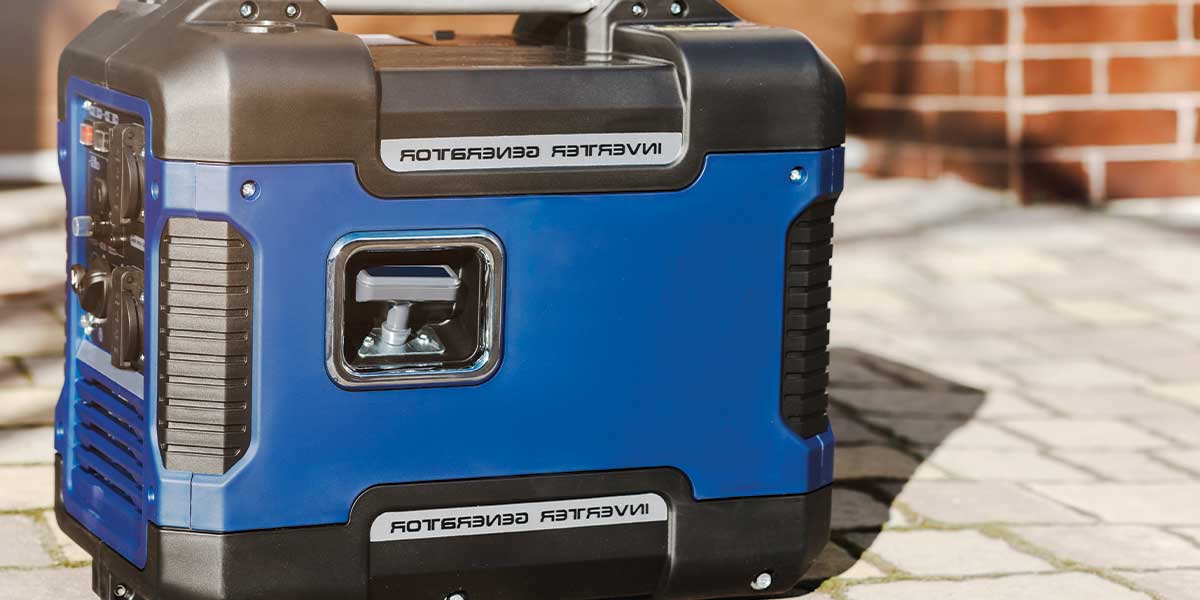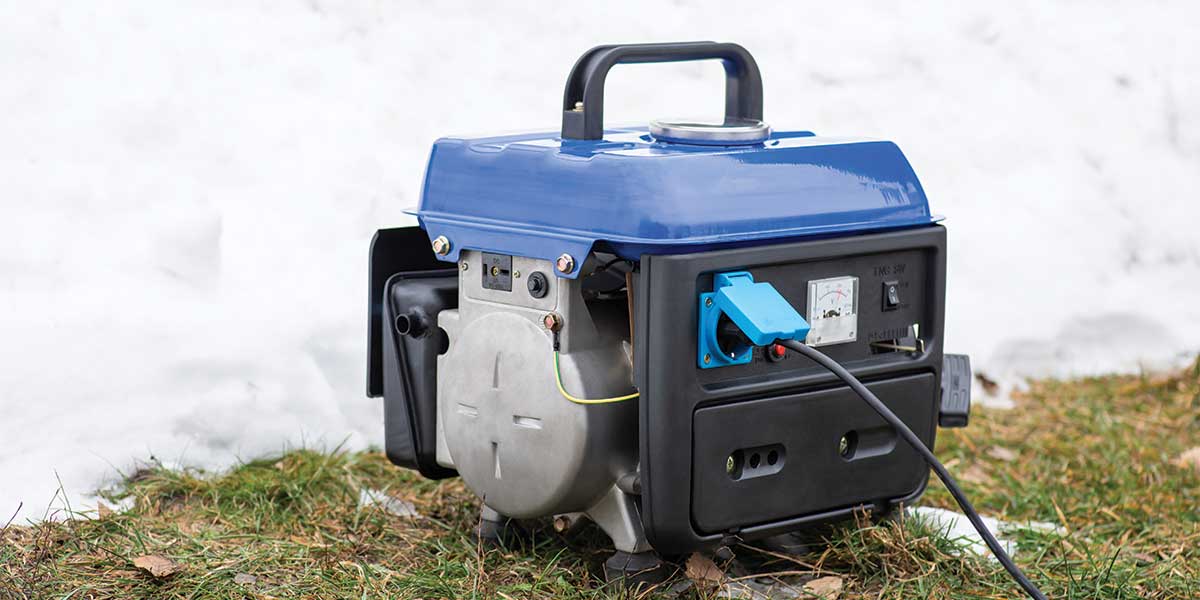When the lights go out and you’re left in the dark, a portable generator can be your lifeline. But like any piece of machinery, it requires regular maintenance to ensure it performs at its best. At Expert Electric, we believe that proper upkeep not only extends the lifespan of your generator but also guarantees reliability when you need it most.
If you’re relying on your generator during storms, outages, or emergencies, you can’t afford to ignore maintenance. Here are some essential portable generator maintenance tips to keep your backup power source ready to perform.
Why Portable Generator Maintenance Matters
Let’s face it, neglecting your generator is a recipe for disaster. Imagine needing power during a blizzard or wildfire evacuation, only to find your generator sputtering or refusing to start. Regular maintenance ensures:
-
Consistent Performance: Your generator will power on when it matters.
-
Longevity: Just like a car engine, regular upkeep extends life.
-
Efficiency: A well-maintained generator uses fuel more efficiently.
-
Safety: Reduces fire risks, carbon monoxide leaks, and electrical hazards.
Whether you’re new to owning a generator or you’ve had one in your garage for years, this guide will walk you through the most important portable generator maintenance tips.
1. Stock Up on Oil and Filters
Think of oil as your generator’s lifeblood. Most new generators require their first oil change after the initial 25–30 hours of use. After that, make it a habit to change the oil every 50 to 100 hours, or at least once per season.
Tips:
- Keep extra oil, filters, and spark plugs in storage, especially before storm season.
- Use manufacturer-recommended oil for best performance.
- Never mix old and new oil.
A supply of oil and filters ensures you’re prepared for extended outages because nobody wants to run out of oil in the middle of a blackout.
2. Let the Generator Cool Before Refueling
Portable generator fuel tanks are usually placed directly over the engine, allowing fuel to gravity-feed into the carburetor. But refueling a hot generator is a fire hazard waiting to happen.
Safety Tip:
Wait at least 15 minutes after shutting off the engine before adding fuel. This reduces the risk of accidental ignition from spilled gasoline on a hot surface, especially in the dark.
Also, always use a flashlight at night and pour slowly to avoid spills.
3. Drain Fuel When Not in Use
Fuel doesn’t last forever. Leaving gasoline in your generator’s tank can cause gumming, corrosion, and clogged carburetors. It can even destroy your fuel system over time. According to the experts at Generator Dealers, proper generator storage and fuel system care are critical for long-term reliability and performance.
Proper Storage Procedure:
- Add fuel stabilizer as recommended by the manufacturer.
- Run the generator for 10–15 minutes to circulate the stabilizer.
- After the engine cools, remove fuel with a non-conductive siphon.
- Let the generator run until it shuts down naturally.
This ensures no residual fuel sits inside your generator, preventing sticky residue from forming inside key components.
4. Check and Replace Spark Plugs
A dirty or corroded spark plug can cause startup issues or reduce generator efficiency. Keeping your generator’s parts in top condition especially air filters, spark plugs, and oil filters, ensures consistent performance. For more detailed component care and maintenance schedules, check out this portable generator parts and maintenance guide by Briggs & Stratton.
How Often to Check:
- Inspect every 100 hours of use or once a season.
- Replace if there’s visible wear or carbon buildup.
Cleaning the spark plug with a wire brush or replacing it altogether is a simple task that makes a big difference.
5. Inspect the Air Filter
Your generator breathes through its air filter. When it gets clogged with dust, dirt, or pollen, the engine can’t run efficiently or at all.
Maintenance Tips:
- Check the air filter every 25 hours or after heavy use in dusty environments.
- Clean or replace the filter based on its condition.
- Foam filters can often be washed and reused; paper filters need replacing.
Clean air filters = clean power generation.

6. Run the Generator Every 30 Days
Like your muscles, your generator needs exercise to stay in shape.
Running the generator for 10–15 minutes every 30 days helps:
- Keep parts lubricated.
- Prevent battery discharge (if electric start).
- Detect any potential issues before they become emergencies.
It’s a small task that provides big peace of mind.
7. Check the Battery (for Electric Start Units)
If your portable generator has an electric start, keeping the battery in top shape is critical.
Battery Maintenance Tips:
- Charge it monthly, especially during the off-season.
- Look for corrosion on terminals and clean it off.
- Replace the battery every 2–3 years or per the manufacturer’s guidance.
Dead battery = dead generator, no matter how new the machine is.
8. Inspect for Fuel or Oil Leaks
Always check under your generator for signs of leaking fuel or oil. A small drip can quickly become a major hazard.
Common causes of leaks include:
- Loose bolts or fittings.
- Cracked fuel lines.
- Deteriorated gaskets or seals.
If you detect a leak, fix it immediately or contact a qualified electrician.
9. Use Heavy-Duty Extension Cords
Not all extension cords are created equal. Always use outdoor-rated, heavy-gauge extension cords to avoid voltage drops or fire hazards.
Extension Cord Best Practices:
- Look for cords rated for at least 15 amps.
- Shorter cords are better for reducing resistance.
- Avoid overloading one outlet, distribute the load if necessary.
10. Store Your Generator in a Dry, Clean Environment
Moisture is the enemy of any engine. Store your generator in a dry, well-ventilated area, off the ground if possible.
Avoid areas prone to:
- Flooding
- High humidity
- Dust accumulation
Consider using a generator cover that allows air circulation but protects from dirt and moisture.
FAQs – Portable Generator Maintenance Tips
Q1: How often should I change the oil in my portable generator?
A: For new generators, change the oil after the first 25–30 hours. Afterward, every 50–100 hours or once per season.
Q2: Can I leave gas in my generator between uses?
A: It’s not recommended. Use a stabilizer if storing for less than a month. Otherwise, drain the fuel.
Q3: Do I need to run my generator monthly?
A: Yes! Running it for 10–15 minutes every 30 days helps keep it in top condition and avoids startup problems.
Q4: What’s the best way to store a generator long-term?
A: Drain fuel, remove the battery (if applicable), cover the unit, and store it in a dry, well-ventilated area.
Q5: Can I perform generator maintenance myself?
A: Yes, many tasks are DIY-friendly. However, if you’re unsure or notice issues, contact Expert Electric for professional assistance.
Final Thought: Power Preparedness Starts With Maintenance
Your portable generator is more than just a convenience, it’s your safety net. And like any safety net, it needs regular attention to ensure it doesn’t fail when you need it most.
These portable generator maintenance tips are designed to help you keep your generator reliable, safe, and ready to go. A few minutes of maintenance each month can save you hours of frustration—and even keep your home safe during emergencies.
If you’re unsure where to begin, or need help with electrical inspections, installation, or repairs, call the professionals. At Expert Electric, we specialize in providing comprehensive electrical services with unmatched professionalism and care.
Contact Expert Electric Today
Ready to ensure your home’s electrical systems and backup power, are in top condition? Trust the experts.
📞 Call Us: 604-681-8338
📧 Email Us: info@expertelectric.ca
Your safety and comfort are our top priorities. Let’s keep your lights on and your worries off. Expert Electric, where reliability meets expertise.


